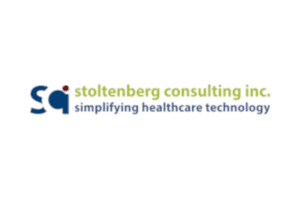The potential benefits of Artificial Intelligence (AI) in healthcare are substantial. AI-powered chatbots can help direct patients to the most appropriate care provider. Ambient clinical voice can virtually eliminate the tedious task of charting for physicians. AI algorithms are can flag radiology images that appear abnormal so that radiologists can prioritize their workload.
AI is advancing quickly. It will not be long before the technology is capable of doing much more complex tasks like diagnosing patients. Should AI be used for this type of work? Is the risk acceptable? These are the questions that are being wrestled with by product designers, data scientists, physicians, and government regulators.
Given the risks and implications, will governments opt to regulate the use of AI in healthcare? And if they do, what form will that regulation take? To get an answer, Healthcare IT Today turned to an expert – Caleb Williamson, State Public Policy Counsel at the Connected Health Initiative, a group that works to clarify outdated health regulations and incentivize the use of connected health technologies.
Legislators are keen to know more about AI in healthcare
According to Williamson, governments at all levels are actively seeking to learn more about the use of AI in healthcare to help inform their decisions on potential regulations.
“Agencies and governments are starting to create task forces because they are recognizing there is a learning curve to AI,” said Williamson. “They are being quite honest with themselves and with their constituents by admitting there is a knowledge gap. They want to be quick to learn, but slow to regulate.”
Williamson hopes that regulators will learn that there are different risk levels to AI’s use in healthcare. Low-risk applications of AI in healthcare include process automation for revenue cycle management, crafting more personalized messages to patients, etc. High-risk applications include the use of AI to diagnose diseases.
To Williamson, this distinction is important because any forthcoming regulation should not, in his opinion, hinder the use of AI for low-risk applications that are helping healthcare organizations deliver better care to patients.
AI likely to be regulated
When asked this titular question, Williamson did not mince words: “Absolutely. Governments want to get involved.”
Governments want to protect people’s privacy – especially patient privacy. As evidence, Williamson cited the over 200 data privacy bills that were brought forward by state governments in the past few years, many of which include provisions specific to healthcare data use.
Williamson also believe governments want to put up guardrails on how AI is deployed in healthcare. He shared an example of a bill in the state of Georgia that would “prohibit the use of AI in the absence of meaningful human review.”
This sounds reasonable, until you consider that AI can be used on a website to direct patients to the closest clinic based on their language preferences, geography and medical needs. Having a person manually review that recommendation before being given to the patient would defeat the purpose.
This is exactly the type of situation that Williamson and the Connected Health Initiative are seeking to avoid. They are actively working with governments around the country to educate them on the nuances of AI and to avoid taking a blanket approach to regulating it.
Aiming for uniform, risk-informed regulations for AI
“We do not want to see a patchwork of bills and regulation that flood the country,” said Williamson. “We’re seeing that currently with data privacy. It is becoming more onerous not only for hospital systems, but also for companies who are building the new technologies. We want to make sure that this doesn’t happen with AI. We want to avoid stifling the use of this technology with a patchwork of regulations.”
Let’s hope that Williamson succeeds in his work to bring uniformity to future AI regulation.
Watch the interview with Caleb Williamson to learn:
- Why being informed on potential legislation is a competitive advantage for digital health companies
- How health IT companies can get involved in shaping future regulations
- What tools are available to track legislation that is being proposed
Learn more about the Connected Health Initiative at https://connectedhi.com/
Listen and subscribe to the Healthcare IT Today Interviews Podcast to hear all the latest insights from experts in healthcare IT.
And for an exclusive look at our top stories, subscribe to our newsletter and YouTube.
Tell us what you think. Contact us here or on Twitter at @hcitoday. And if you’re interested in advertising with us, check out our various advertising packages and request our Media Kit.
Get Fresh Healthcare & IT Stories Delivered Daily
Join thousands of your healthcare & HealthIT peers who subscribe to our daily newsletter.



